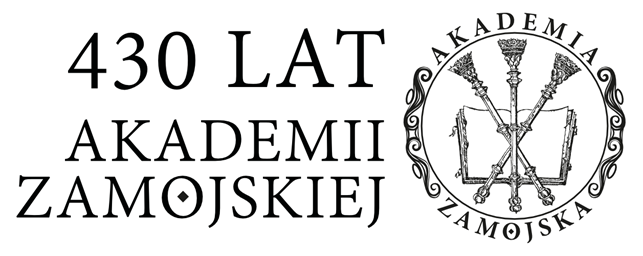Spinoza w twórczości Jerzego Żuławskiego
Abstrakt
Artykuł dotyczy interpretacji myśli XVII-wiecznego holenderskiego filozofa — Barucha Spinozy przez polskiego pisarza oraz filozofa (z przełomu XIX i XX wieku) — Jerzego Żuławskiego. Baruch Spinoza (1632–1677) był potomkiem portugalskich Żydów sefardyjskich, którzy w XV wieku, po czystkach religijnych, wyemigrowali do Amsterdamu. Kształtował swoje poglądy filozoficzne w polemice z Kartezjuszem, dążąc do przezwyciężenia kartezjańskiego dualizmu na rzecz monizmu (panteizmu). Znaczący wpływ na poglądy holenderskiego myśliciela miał stosunek do judaizmu, dążenie do przewartościowania religijnej tradycji żydowskiej. Mimo że należy do najwybitniejszych przedstawicieli kultury europejskiej, nie zyskał sławy za życia. Jego Traktat teologiczno-polityczny został wpisany na indeks ksiąg zakazanych, zaś większość dzieł, łącznie z najważniejszym, tj. Etyką, wydano po śmierci autora. Żył w cieniu Kartezjusza i Blaise’a Pascala, a po śmierci na wiele lat całkowicie o nim zapomniano. Odkryli go na nowo w XIX wieku Johann W. Goethe, Gottfried J. Herder, myśliciele zainteresowani spinozjańskim panteizmem, którzy świadomie zacierali granicę oddzielającą filozofię od literatury. Zainteresowanie B. Spinozą w Polsce nie było tak duże jak Kartezjuszem czy Immanuelem Kantem, lecz także w naszym kraju holenderski uczony miał swoich zwolenników. Należał do nich przede wszystkim Jerzy Żuławski( 1874–1915) — polski poeta, pisarz, dramaturg, filozof, ale też taternik i legionista. Dzisiejszemu czytelnikowi kojarzy się on przede wszystkim z Trylogią księżycową, zwłaszcza jej pierwszą częścią Na srebrnym globie. O innych pracach J. Żuławskiego zazwyczaj wie się niewiele, chociaż zarówno ich liczba, jak i jakość jest imponująca. Pisarz nie zamknął się w jednym gatunku, pozostawił po sobie kilka tomów poezji, dramaty, powieści, opowiadania, eseje. Będąc Polakiem pochodzenia żydowskiego, znał dobrze język hebrajski, o czym świadczy jego polski przekład Ksiąg niektórych z żydowskich pism Starego Zakonu wybranych (1905). Wysoko oceniane są J. Żuławskiego przekłady fragmentów Biblii. Aleksander Brückner twierdził, że to raczej „transkrypcje niż przekłady” i zaliczył je do najcenniejszych prac tego pisarza. Żuławski posiadał gruntowne, profesjonalne wykształcenie filozoficzne. Ukończył na Uniwersytecie w Bernie (1897) studia filozoficzne, broniąc doktorat dotyczący problemu przyczynowości u Spinozy (Das Problem der Kausalität bei Sponoza). Praca została wydana w całości po niemiecku, natomiast po polsku ukazała się jej spopularyzowana wersja Benedykt Spinoza — człowiek i dzieło (1899). Dwa lata później, w 1901 roku, opublikował w „Przeglądzie Filozoficznym” obszerne streszczenie tej pracy. Mając filozoficzne wykształcenie uniwersyteckie zdobyte na renomowanym, szwajcarskim uniwersytecie, dobrze znał poglądy czołowych myślicieli tamtego czasu: Artura Schopenhauera, Fryderka Nietzschego, Eduarda von Hartmanna, i w jakiejś mierze nimi się inspirował, lecz najważniejszą jego inspiracją był Benedykt Spinoza. W niniejszym artykule postaram się przedstawić poglądy holenderskiego uczonego, zwłaszcza jego panteizm, w ujęciu młodopolskiego pisarza w perspektywie jego doświadczeń i przemyśleń zawartych głównie w książce Benedykt Spinoza – człowiek i dzieło.
Słowa kluczowe:
kultura, modernizm, filozofia, sztukaSzczegóły
Bibliografia
Statystyki
Autorzy
Zasady cytowania
Licencja

Utwór dostępny jest na licencji Creative Commons Uznanie autorstwa – Użycie niekomercyjne – Na tych samych warunkach 4.0 Międzynarodowe.


 Język Polski
Język Polski
 English
English




